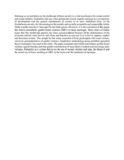Please use this identifier to cite or link to this item:
https://cris.library.msu.ac.zw//handle/11408/938Full metadata record
| DC Field | Value | Language |
|---|---|---|
| dc.contributor.author | Matope, Nogget | - |
| dc.contributor.author | Maruzani, Nyevero | - |
| dc.contributor.author | Chauraya, Efiritha | - |
| dc.contributor.author | Bondai, Beatrice | - |
| dc.date.accessioned | 2016-04-20T15:17:45Z | - |
| dc.date.available | 2016-04-20T15:17:45Z | - |
| dc.date.issued | 2013-10 | - |
| dc.identifier.issn | 2315-8735 | - |
| dc.identifier.uri | http://hdl.handle.net/11408/938 | - |
| dc.description.abstract | Marriage as an institution in the traditional African society is a vital mechanism for social control and social stability. Zimbabwe like any other patriarchal society regards marriage as a cornerstone of development and the general maintenance of society in its most traditional form. In the Zimbabwean society, for the marriage to be morally and socially acceptable and respectable, lobola (bride wealth) must have been paid by the bride groom. However, it is the contention of this paper that lobola exacerbates gender based violence (GBV) in these marriages. Most critics of lobola argue that this traditional practice has been commercialised because of the dollarization of the economy and has since lost its real value and function as men use it as a tool to oppress, exploit and dominate women. The sample for the study consisted of forty participants who were victims, survivors and perpetrators of gender violence. Qualitative methodology using modified grounded theory techniques was used in the study. The paper maintains that lobola exacerbates gender based violence against females and that gender constructions of masculinity condone and encourage male violence. Patriarchy as a system thrives on the use of sexual violence and rape, the threat of and the actual use of force resulting in GBV in the home and the institution of marriage. | en_US |
| dc.publisher | Apex Journal International | en_US |
| dc.relation.ispartofseries | Journal of Education Research and Behavioral Sciences;Vol. 2, No. 11: 192-200 | - |
| dc.subject | Gender violence, Economic inequality, Lobola, Zimbabwe. | en_US |
| dc.title | Lobola and gender based violence: perceptions of married adults in Gweru urban, Zimbabwe. | en_US |
| dc.type | Article | en_US |
| item.fulltext | With Fulltext | - |
| item.grantfulltext | open | - |
| item.openairetype | Article | - |
| item.openairecristype | http://purl.org/coar/resource_type/c_18cf | - |
| item.cerifentitytype | Publications | - |
| Appears in Collections: | Research Papers | |
Files in This Item:
| File | Description | Size | Format | |
|---|---|---|---|---|
| Lobola and gender.pdf | Abstract | 39.72 kB | Adobe PDF |  View/Open |
Page view(s)
148
checked on Apr 5, 2025
Download(s)
50
checked on Apr 5, 2025
Google ScholarTM
Check
Items in MSUIR are protected by copyright, with all rights reserved, unless otherwise indicated.



